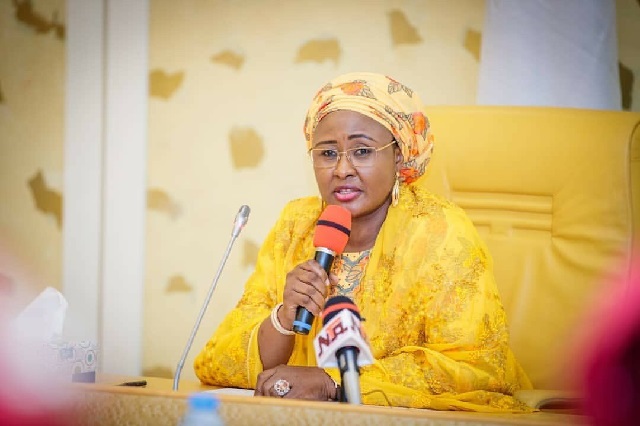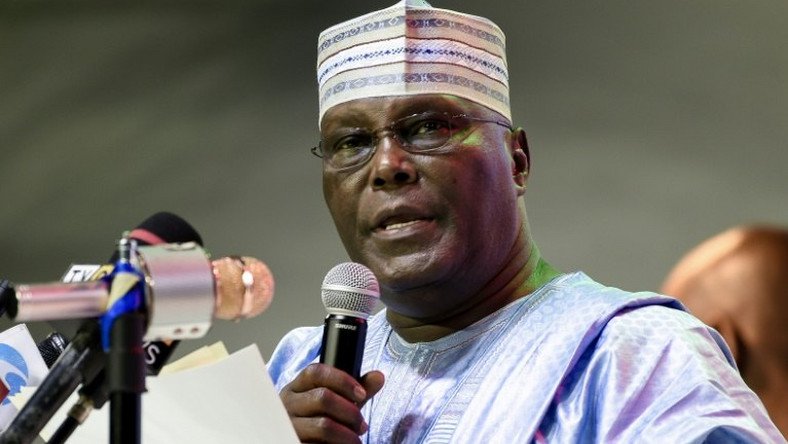Wife of Nigeria’s president Aisha Buhari has criticised the country’s ruling party for removing some aspirants’ names from the lists of persons to contest election primaries.
Mrs Buhari said the party primaries were against the tenets of the party such that it would not be difficult to dissociate her from the process.
“Given this development one will not hesitate than dissociate from such unfairness, be neutral, and speak for the voiceless,” Buhari said on Sunday.
Mrs Buhari’s diatribe came hours after her husband, Muhammadu Buhari, was confirmed by an APC national convention as its presidential candidate in the next general elections.
She accused the APC of collecting money from aspirants for candidacies that have been automatically granted to specific persons.
However, she did not mention any specific instances that drew her ire.
“It is disheartening to note that some aspirants used their hard earned money to purchase nomination forms, got screened, cleared and campaigned vigorously yet found their names omitted on election day. These forms were bought at exorbitant prices,” she said.
“Many others contested and yet had their result delayed, fully knowing that automatic tickets have been given to other people.”
The Nigerian First Lady has been critical of the APC leadership in the past. In 2016, she accused the president of neglecting those who worked for his election as the Nigerian leader.
At the time, she said she may not support Buhari’s re-election if the situation did not change.
“I have decided as his wife, that if things continue like this up to 2019, I will not go out and campaign again and ask any woman to vote like I did before. I will never do it again.”
The First Lady expressed similar sentiments in her Sunday statement.
She said it “is important for the populace to rise against impunity and for voters to demand from aspirants to be committed to the provision of basic amenities” instead of supporting candidates that were products of ‘unfairness’.













